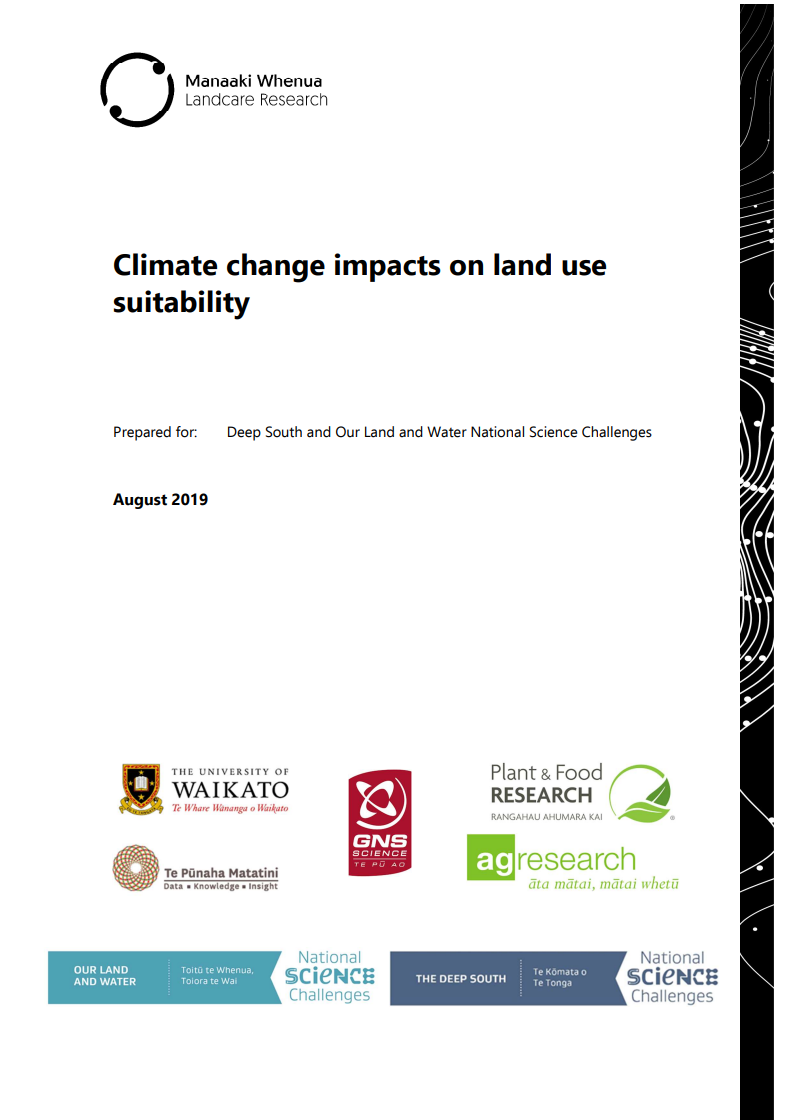Description
This project explored the likely impact of climate on the suitability of some primary production activities.
It had two aims:
- to identify the climate attributes influencing the productivity and the impacts on receiving environments,
- to explore future climate projections to understand the potential impacts of long term average changes and drought on production and receiving environments
Date: August 2019 Version: v1
Owner: Deep South and Our Land and Water National Science Challenges
Contact: MWLR, PFR, AgR, GNS, University of Waikato
Preview Image

Dataset attributes
| Spatial extent |
New Zealand |
|---|
| Spatial resolution |
|
|---|
| Temporal extent |
|
|---|
| Temporal resolution |
|
|---|
| Evaluation method (Validation) |
|
|---|
| Evaluation result (Numeric) |
|
|---|
| Evaluation result (Categorical) |
|
|---|
| Uncertainty method |
|
|---|
| Uncertainty data format (Numeric) |
|
|---|
| Uncertainty data format (Categorical) |
|
|---|
Methodology
A range of simple to complex biophysical models (including climate
indices, WATYIELD, Biome-BGC, APSIM) were used to simulate several production systems (pasture,
crop, horticulture) and project into the future the changes in some production attributes.
Three spatial scales were tested: point-scale for application of complex biophysical
modelling (APSIM) in three regions (Hawke’s Bay, Southland, Waikato), regional scale
(Hawkes Bay for moderately complex biophysical models (Biome-BGC and WATYIELD)
and national scale for simple climate indices.
Fitness for purpose / limitations
This table indicates whether the dataset is suitable for different types of questions at different scales.
Note: Users should carefully consider their purpose as this dataset may not be suitable.
|
Operational
| Absolute
| Relative
| Screening/scoping
|
| Block/farm |
No | No | Maybe | Maybe |
| Multi-farms(5+) |
No | No | Maybe | Maybe |
| Catchment |
No | Maybe | Maybe | Maybe |
| National/regional |
No | Maybe | Maybe | Maybe |
Caveat(s) |
The impact of climate change on a range of crops, locations and scales was investigated using various models. Many of the modelled output layers have since been revised, however the general findings in this report are likely to be of interest. |
